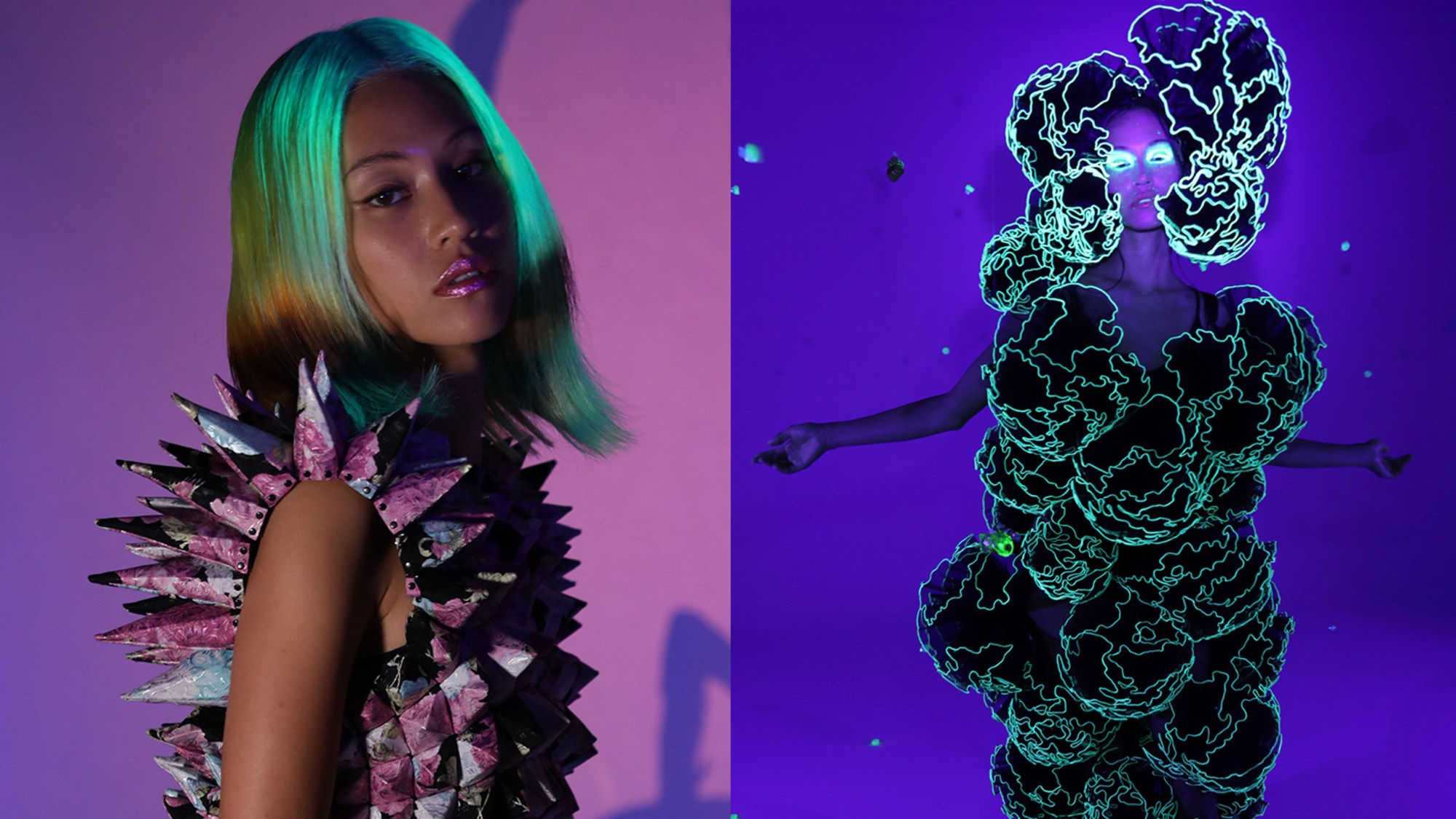Kiko Mizuhara was on Amami Oshima – a UNESCO-listed island off the southwest of Japan known for its mangrove forests, clear waters and offshore reefs – until the day before our interview. Starting as a hobby, the model and actor trained for her advanced diving licence (certified to dive up to 30 metres) and quickly developed a new obsession, aiming for a divemaster license in the future. On this latest trip, on the night of the new moon, Kiko witnessed coral spawning – an experience that only deepened her relationship with the ocean.
Scroll through her Instagram these days and you’re as likely to see sea slugs, catsharks and lionfish as you are her fashion campaigns or snapshots from WET, the club night she runs with her sister Ashley Yuka. It’s something that has fed into other areas of her life too. Beyond this bioluminescent shoot (in which she wears Noir Kei Ninomiya for i-D Japan), Kiko has released a scuba-inspired capsule collaboration between her fashion brand Office Kiko and Fruity Booty swimwear.
As you might have gathered, Kiko’s lifestyle has shifted dramatically in recent years; her free time now spent immersing herself in nature wherever possible. Like many of us, a pandemic-induced realisation that time is fleeting has changed her attitude towards work, her personal life and pretty much everything else. “I’m now really looking forward to thinking about what life will be like when I live honestly, according to what my heart tells me,” she tells us, candidly. “I used to underestimate myself, but now I want to believe in myself.”
We caught up with Kiko to discuss all of the above and more.
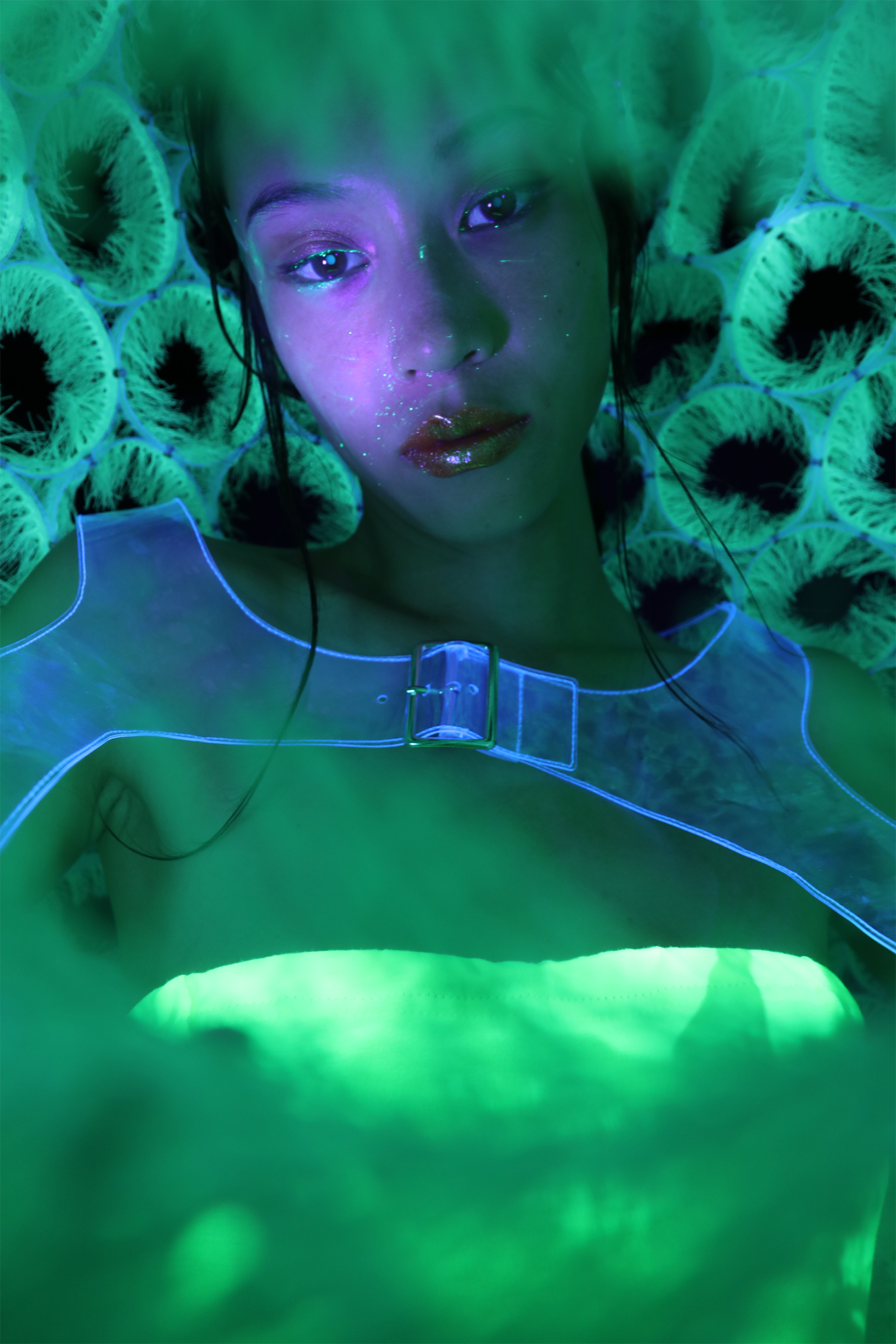
You always seem to be trying new things. What can you tell us about your club night, WET? And how you started planning events in the first place?
I started organising parties about five years ago, when I launched my fashion brand ‘OK’. The venue for WET, a club called RAISE, is different to the kind of clubs I usually go to – it’s the type where people pop bottles of champagne. The owner wanted more young people to come, so he asked me to organise a party. I agreed because I felt that young people were getting stressed out by the pandemic and the urge to go out and have fun was rising. What I was aiming for was a party that all ages and genders can enjoy; a place where we can forget about everyday life and enjoy ourselves as human beings. All kinds of people were mingling, and even though it was a Monday night, there were still queues at 4am.
How have the past few years impacted your own life?
Before covid, I was abroad for work all the time so I didn’t spend much time with my family. But with lockdown restrictions, I got to spend time with my family for the first time since I was a child. During that time, I had to take care of my elderly cat who I had adopted when I was 16 years old. I realised that time is limited and should be cherished, and I became more determined to live my life without regrets.
Has that impacted your career decisions too?
I used to see things from the world’s point of view, but now I make decisions about work, and other things, from my own point of view. When I work on a film, I don’t choose it based on the name of the distributor, but rather on whether I know I’ll work on it with passion. A film can take between three to six months, and if you don’t love your work, that can take its toll on you.
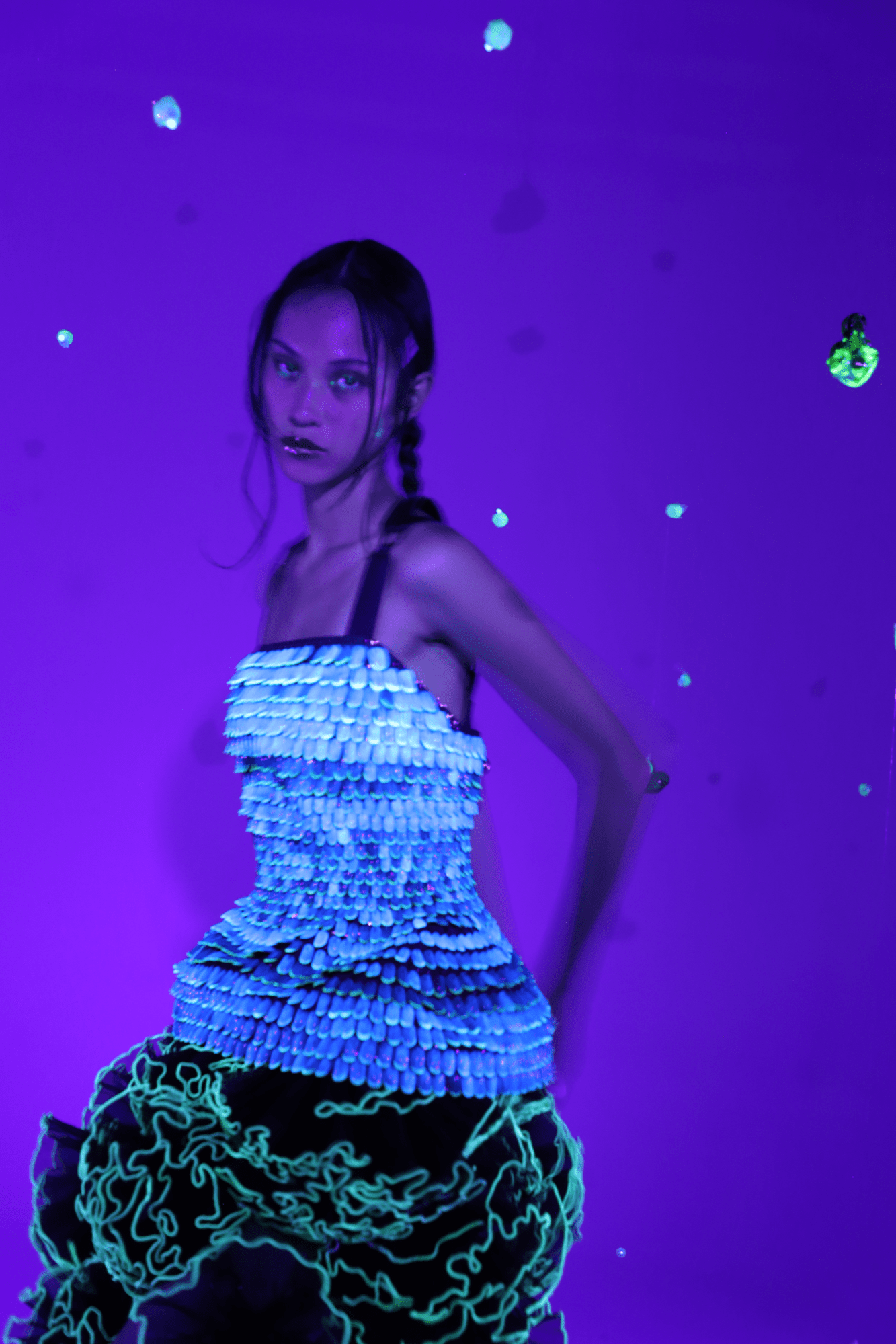
So you’re prioritising things that you really care about?
Exactly. I’ve decided that I want to keep plugging away at things that are meaningful to me. Outside of work, I like nature, so I started diving. And I also got a car licence – I want to spend my life doing things that enrich me and take me as far as I can go.
And as such, you’re working to improve the state of the film industry in Japan through creating a support body to advise on implementing things like the use of intimacy coordinators, right? How did that come about?
I heard about the launch of the Film Directors’ Association, led by directors such as Hirokazu Kore-eda, Yukiko Saihide and Miwa Nishikawa (who directed an Audible project in which I read a novel by Hitomi Kanehara). A Netflix film I had appeared in was filmed with an intimacy coordinator, and it was through that they learned that such a profession existed. Director Miwa Nishikawa said that she wanted my help to make the Japanese film industry a more open place than it is now, and I agreed. I was very happy to help. As an actor, I’m vulnerable no matter what I say. It might seem like I have a big voice, but I get slammed and I’m easily made fun of. I think it’s the directors that people in the industry listen to and are influenced by the most. I thought that if directors stood up and took a stand against the problem, it would be a trend that would change the whole industry.
I’ve been present in the industry for a long time, working as a model, designer, actor and many other jobs. I’ve also worked in a way that is completely different from the norm in the Japanese entertainment industry, so I thought that I might not be recognised as an actor. So being asked to contribute to an association like this was really encouraging for me, as I had always felt that I didn’t belong to this community.
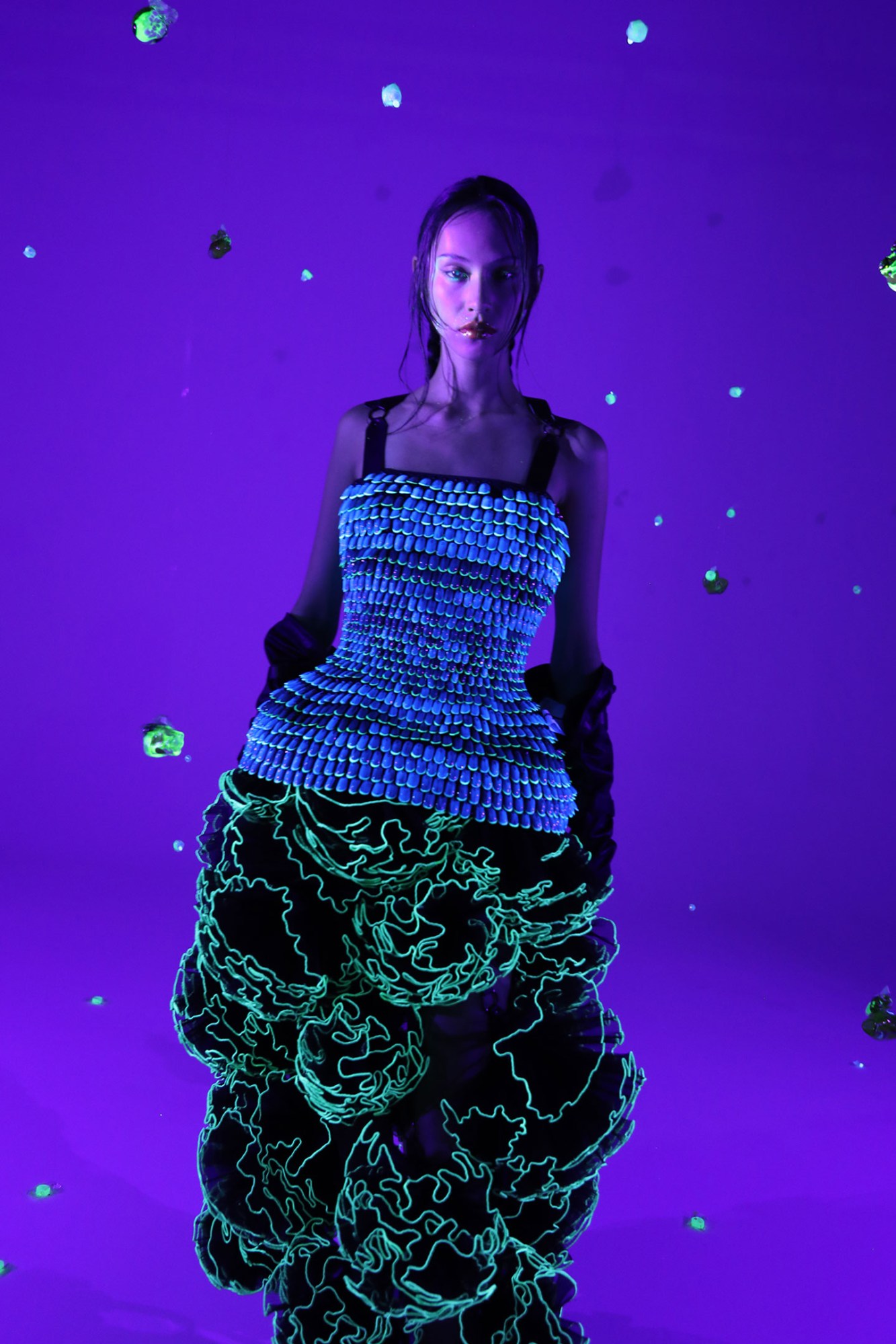
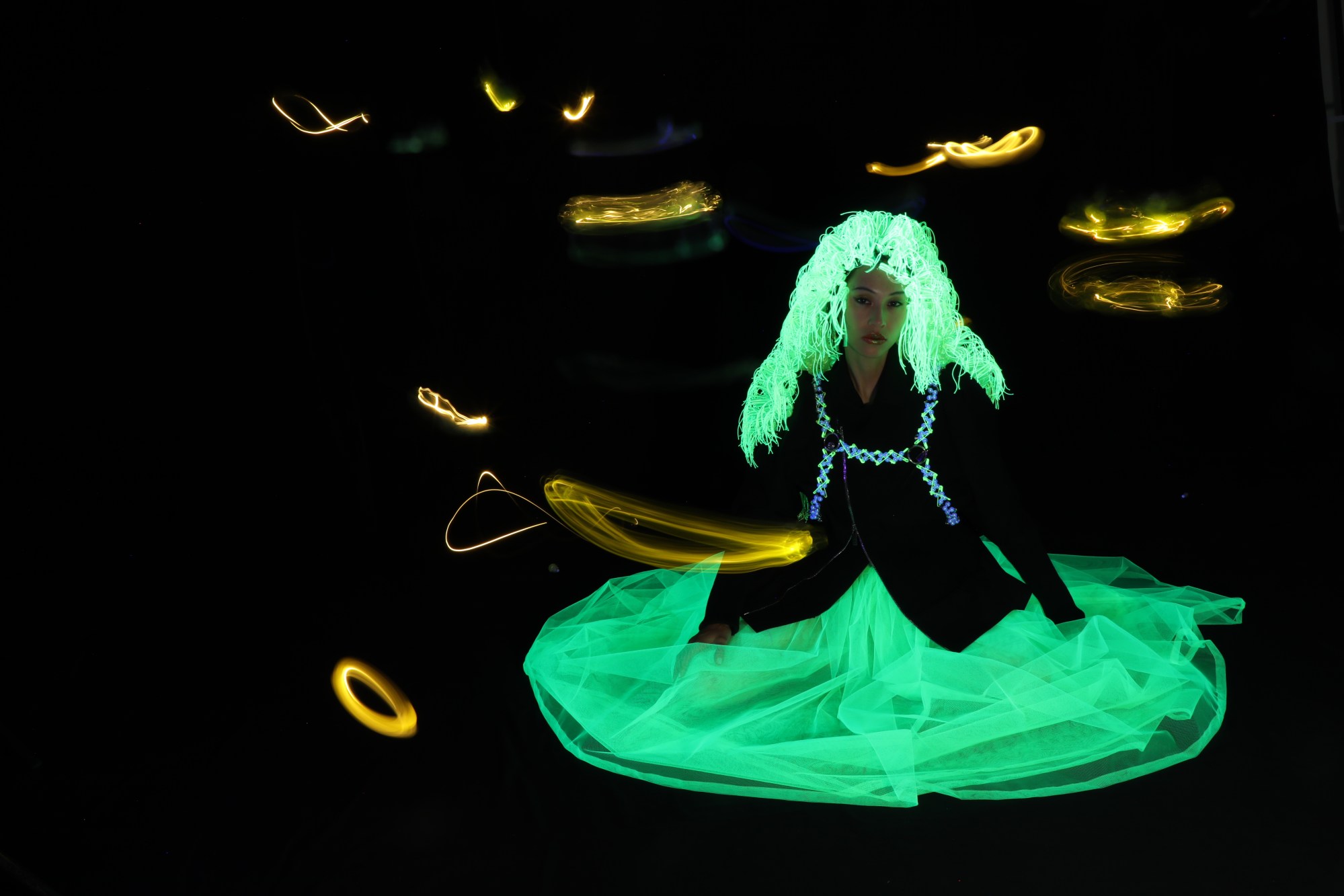
Credits
Creative Director Kazumi Asamura Hayashi
Photography Monika Mogi
Styling Masako Ogura
Make-up Rie Shiraishi
Hair Sakie Miura
Set Design Lena Sasakura Shockley
Editor Noriko Wada
Photography Assistant Ai Shogaki
Styling Assistant Kana Hashimoto
Hair Assistant Saiyaka Arai
Editorial Assistant Keita Sasaki
